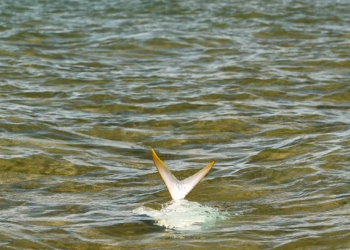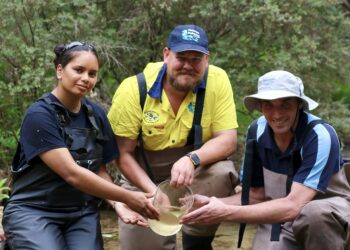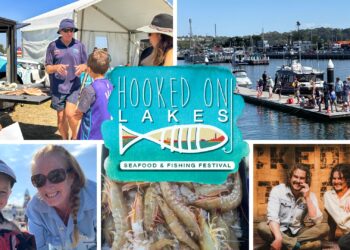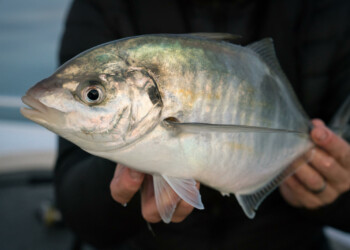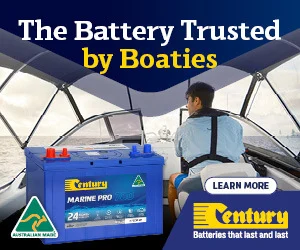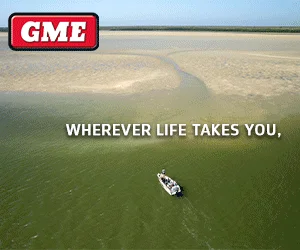Recently retired British MP and UK government’s Angling Spokesman Martin Salter, who now lives in Sydney, gives his views on the long awaited report from the NSW Parliament’s Upper House Inquiry into Recreational Fishing.
Earlier this year, in separate hearings, Fisho editor Jim Harnwell and I gave evidence to the New South Wales Parliamentary Inquiry into Recreational Fishing on the controversial issue of angling bans in Marine Parks. Many of us also pressed for a stronger and better system of representation for local anglers and to open up access to closed waters. On Friday, after much wrangling, the inquiry report was finally published. So what does the report say and what could this mean for recreational fishers in New South Wales?
Well first off let me say that Rob Brown of the Shooters an Fishers Party, who chaired this Upper House inquiry for over a year, has done a fine job for us. Despite all the politics and posturing and inevitable attempts by the Greens and their allies to water down the recommendations this is still a pretty reasonable report with some potentially positive outcomes for angling in NSW.
However, to find out what really went on we need to dig a little deeper and to break down our examination into three key areas; namely the evidence, the recommendations and the process.
Evidence
This is most impressive part with over 1000 submissions, more than 100 witnesses and 10 public hearings across NSW. The evidence base alone has made this an invaluable exercise and gives us a great resource base on which we can draw in future campaigns. A clear majority of witnesses and submissions illustrated how the existing Marine Parks and Sanctuary Zones were poorly conceived and implemented and were bereft of proper scientific justification. There was also a strong case made for transferring monies spent on Marine Parks into tackling the real threats to the aquatic environment which are land use practices and habitat destruction as well as commercial over exploitation. Powerful arguments were put forward to overhaul ACORF and transfer the management of Marine Parks into Fisheries.
Recommendations
Although there are some good things put forward there are too many “reviews” and “considers” rather than “change” and “musts”. It is a shame that the Labor members of the committee, particularly Linda Voltz, combined with the sole Green – Ian Cohen, to water down the recommendations that the evidence suggested should have been put forward.
I will highlight a few of the good things:
* No more Marine Parks for five years to allow for proper assessment.
* Re- introduction of trolling in some Sanctuary Zones
* Each Marine Park to introduce one area of restricted angling in a Sanctuary Zone
* GPS marking of all zones
* Full review of ACORF
* Fisheries to engage licence holders via database
* Research restrictions on Rec Fish Havens – eg. Botany Bay
* One artificial reef per MP in compensation
* More compliance officers
* Open up freshwater dams such as Prospect Res on a trial basis
* Water Safety Advisory Council to look at the issue of mandatory lifejackets for dangerous rock platforms
And some potentially bad things:
* commercial access to some recreational fishing havens for certain species
* Allowing beach hauling by Aboriginal communities to remain exempt from licensing
The Process
Most alarming of all has been the behaviour of Cohen and Voltz who moved scores of amendments deleting references to any evidence which did not correspond to their own personal views of the world. This is a travesty of the process in my opinion. I spent 13 years as an active member of a number of major Select Committees in a national parliament and the golden rule was to make the report reflect the evidence not your prejudices!
Now they couldn’t remove the evidence transcripts from the public record but they did try to expunge references to evidence they didn’t like in the final published report. Here are just some examples …
* Removing data on economic benefit of rec fishing to local community… Cohen 2.5
* deleting reference to catch and release and the effectiveness of circle hooks… Voltz 2.23/4
* Re-wording section to make rec fishers seem less compliant and less willing to countenance increases in size and bag limits… Voltz and Cohen 3.17 – 3.36
* Delete reference to impact of seal colony at Montague Island taking more than the entire rec catch for the area ..Voltz 3.45
* Deleting whole rafts of evidence from prof Bob Kearney…Voltz and Cohen 3.46 through to 4.36 and beyond!
* Delete evidence re need to spend money improving land use practices rather than on more marine parks of questionable value… Cohen 3.17
* Spend Rec Fish Trust money on making good polluted estuaries rather than dipping into Environmental Trust funds!… Cohen Rec 3
* Delete evidence showing poor practice in marine park planning process… Cohen 4.89
* Delete evidence showing bad land use practice by MPA causing environmental problems in tidal lakes… Cohen 4.238
* Delete reference to DPI scientific expertise not being properly used by MPA… Voltz 4.252
And so on and so on … it will take you a while to get to the end of all these ridiculous amendments but if you download the report HERE and then go to Minutes 13, 14 and 15, which are at the back of the report from about page 396 onwards, you will see what these characters have been up to. You might also like to read Rob Brown’s dissenting report in Appendix 9.
Funnily enough it seems as if Voltz and Cohen were so busy removing references to vast tracks of evidence they didn’t like from people as knowledgeable as Canberra Fisheries professor Bob Kearney and representatives of NSW fishing clubs that they forgot to delete a whole range of recommendations that are good news for us!
Anyway, I think we should be pressing for the publication of the full, uncensored report as it seems that our opponents are afraid of the facts. Apparently the original Chairman’s Draft Report is considered confidential and even those of us who took the trouble to attend and give evidence are not issued with a copy. All we get is the censored version after Cohen & Co have done their worst. Crazy really, since anyone with a spare couple of weeks could piece it all back together by re-inserting the sections and recommendations that were removed. But why should we have spend our time playing word games when this was supposed to be an exercise in public scrutiny? I’m sure that Fisho would be only too pleased to publish the two versions of this report side by side so that we can all see, at a glance, what evidence the Greenies tried to suppress!
That said we should welcome this report as a useful guide for the NSW Government and ask them for a response ahead of the election in March rather than waiting to the June deadline. If the government is short of time, and I concede it’s a weighty report, then at least the State party leaders can let us have a clear statement of intent as to which parts of which report they support or oppose. That way fishers in NSW can see what they are voting for which seems to me to be a pretty basic democratic requirement.
If you agree with either or both of these points why not write to Rob Brown, or drop me an email. I can be reached at salterm2@googlemail.com.
Let’s hope the politicians are listening and perhaps, instead of clamping down on their fellow citizens with a rod and line whose impact on fish populations is not only properly regulated but negligible, they turn their attention to the real threats to fish stocks. As any fishery scientist will tell them these include: inshore pollution, sedimentation and agricultural chemical run-off which destroys the spawning habitats vital to successful recruitment and, of course, commercial over-fishing.
Recreational fishing and boating is a huge part of the lifestyle here in Australia. It is worth over ten billion dollars to the economy and sustains thousands of jobs. Furthermore, kids who fish are less likely to get caught up in drugs and crime and fishing is a great way for them to learn more about the environment. Let’s also hope that the Inquiry findings are the beginning of a New Deal for the long suffering Australian anglers.
Ed’s note: An opinion piece by Martin Salter on the state of fishing and marine parks in NSW appeared in last weekend’s Daily Telegraph – read it HERE.













